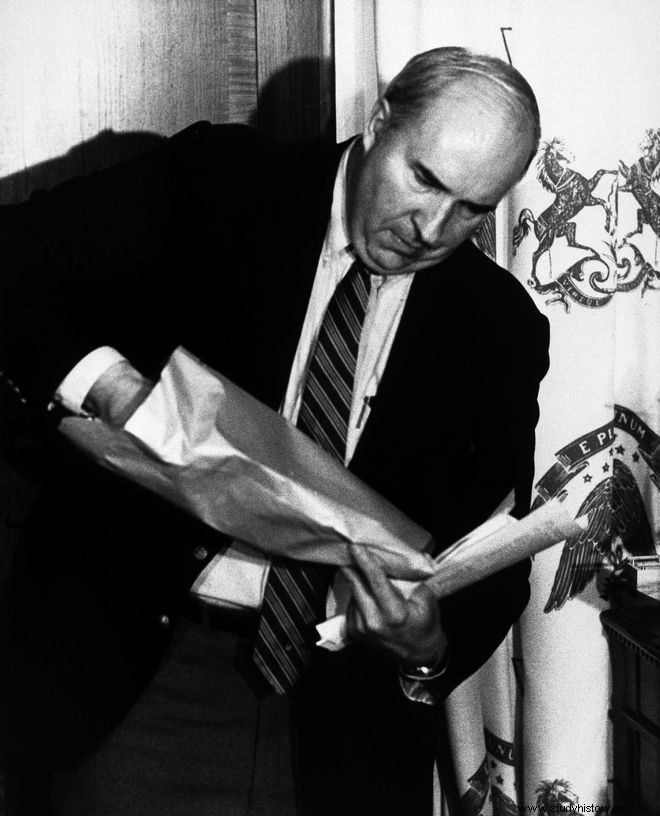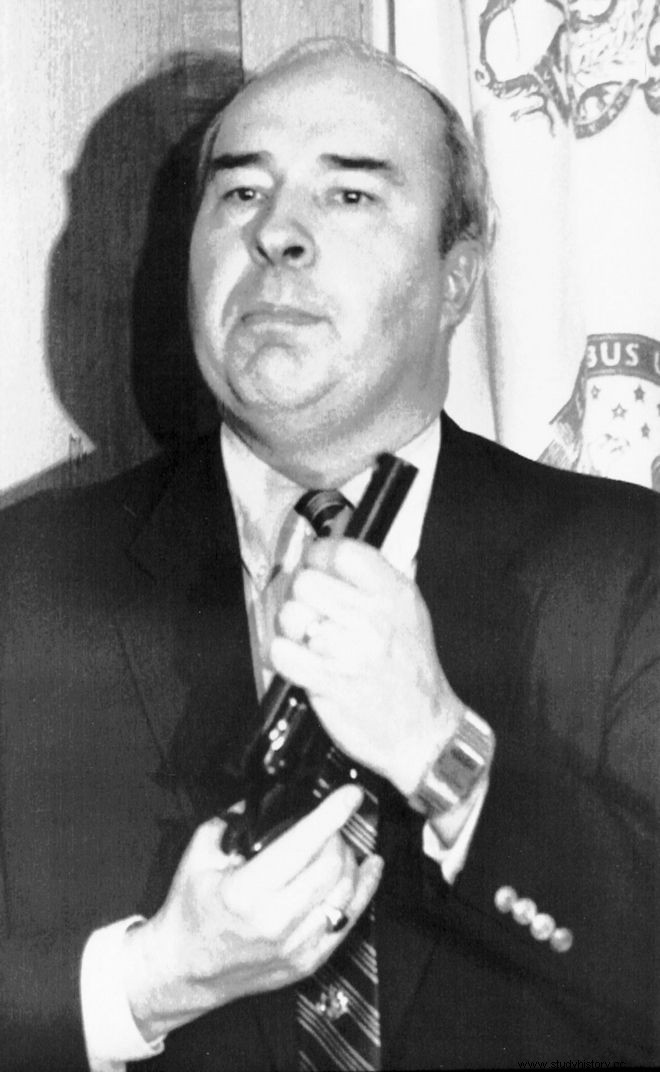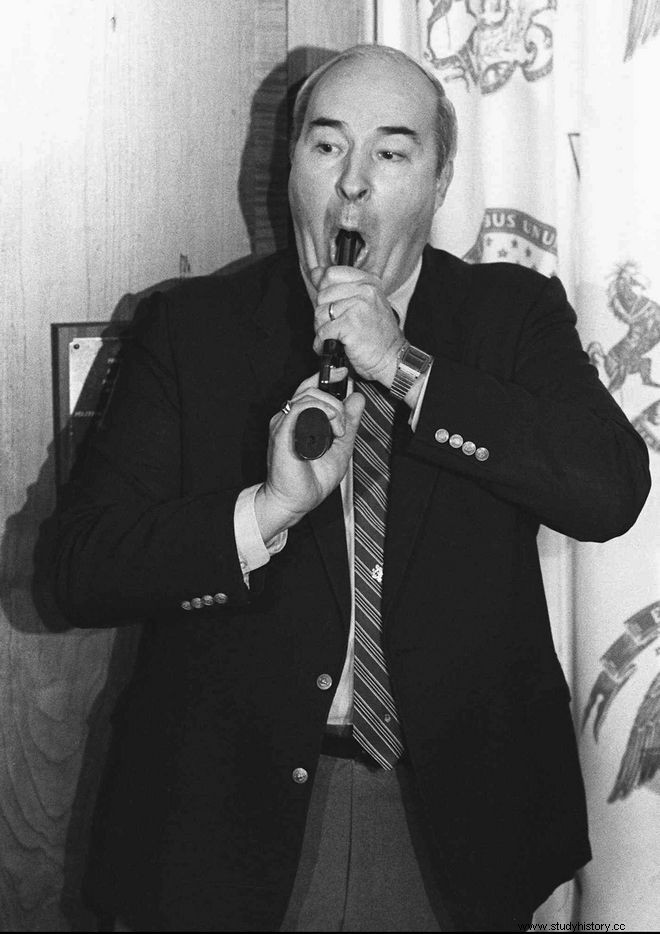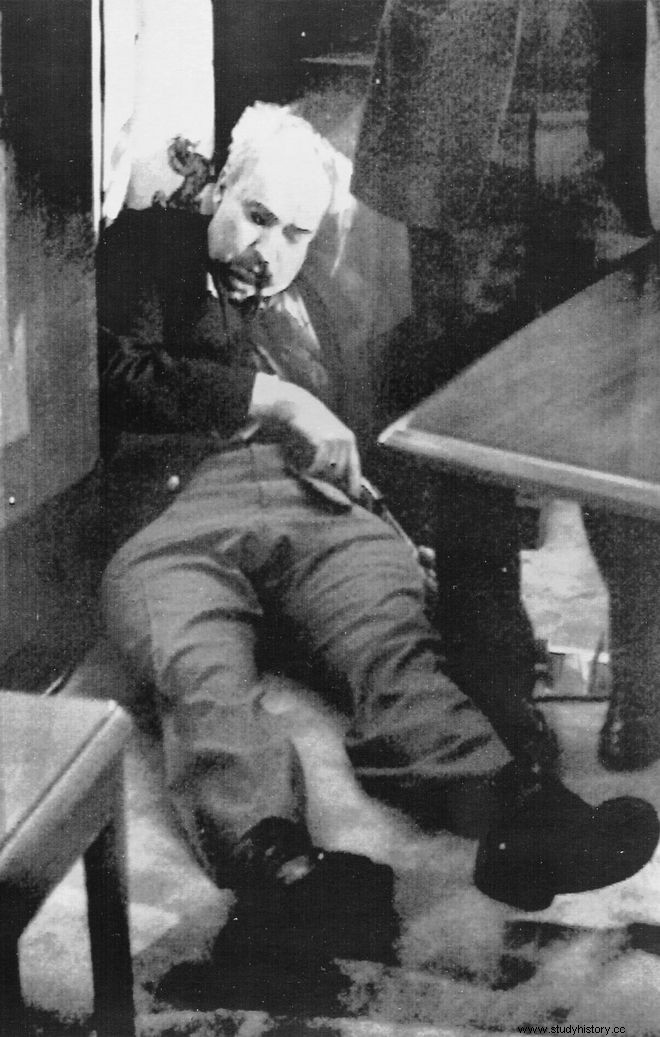It was January 22, 1987. Bud Dwyer was shooting himself in front of the cameras, and the whole world was shocked, wondering if journalism has limits after all, and if so, what they are.
The suicide of the American politician was watched live by millions of people, even small children who were at home as most US schools were closed, not because of a pandemic like today, but because of the snow wave that swept the States.
Dwyer was a senator in Pennsylvania and was preparing for the Treasury Department. His name was involved in a bribery case , when he was accused of receiving $300,000 to help a businessman get a contract in that State. His involvement came after an anonymous letter with the politician claiming that he was innocent.
He was tried with a proposed sentence of pleading guilty to financing and five years in prison. However, Dwyer continued to maintain his innocence. Ultimately, he was sentenced to 55 years in prison and a fine of $300,000.
On January 22, 1987 he gave a press conference for the whole case, while the next day he would have to report to the prison. The interview took place at 11 in the morning with journalists flooding the room. He reiterated that he was innocent and that he did not intend to resign. He also accused the court saying that he is a victim of fraud.
His last speech, before suicide:
As soon as he finished his speech he took out three envelopes from his bag and gave them to his secretary. He then presented a quarter containing a 357 Magnum. He displayed the gun and asked them to leave the room. He put the gun in his mouth and pulled the trigger. Five television crews had remained in the room and recorded the suicide on camera.
The suicide opened up the agenda of the debate about ethics in journalism, with major networks debating whether or not to air the footage. Communication professors responded that those in charge should pay more attention to the psychological impact of the news, rather than the numbers. In 2010, the documentary "Honest Man:The Life of R. Budd Dwyer" was released. He went down in history as "the honest politician" who pushed the profession of journalism to its most sensitive and delicate limits.
The suicide frame-by-frame as recorded by the lens of the Associated Press:




Read the News from Greece and the world, with the reliability and validity of News247.gr.
